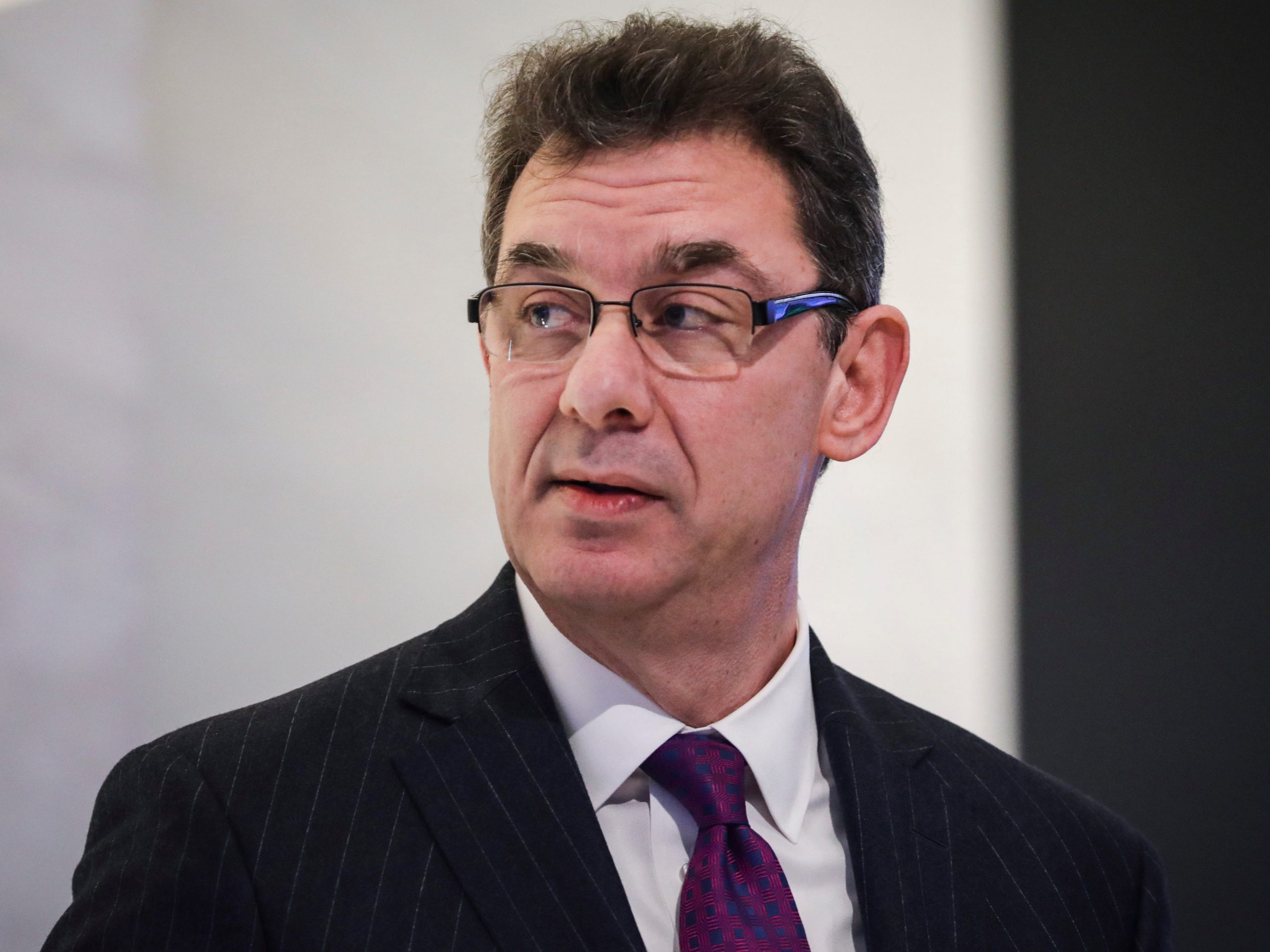
Drew Angerer/Getty Images
- Pfizer executives, including its CEO Albert Bourla, won’t “cut the line” to get a COVID-19 vaccine, Bourla told CNBC Monday.
- “I’m 59 years old, in good health, I’m not working on the frontline, so my type it is not recommended to get vaccination now,” he told CNBC.
- But Bourla noted that polls conducted by Pfizer suggest that people would be more willing to take the vaccine if he, as the company’s CEO, got the shot.
- “I’m trying to find a way that I will get vaccinated, despite if it is not my time, just to demonstrate the confidence of the company,” he said.
- A Centers for Disease Control and Prevention (CDC) advisory group has recommended that healthcare workers and nursing home residents should be first in line for the vaccines.
- Visit Business Insider’s homepage for more stories.
Pfizer’s CEO Albert Bourla hasn’t taken the COVID-19 vaccine his company developed alongside BioNTech yet – and he told CNBC Monday that Pfizer executives will wait until it’s their turn to get a shot.
“As soon as I can, I will,” he said. But he added that he doesn’t want executives to “cut the line” and set a bad example.
“I’m 59 years old, in good health, I’m not working on the frontline, so my type it is not recommended to get vaccination now,” he explained.
However, Bourla said he would consider getting the vaccine earlier than recommended for someone of his age and health “just to demonstrate the confidence of the company.” This could encourage others to take the shot, he said.
The US Food and Drug Administration (FDA) authorized the vaccine for emergency use on December 12. On Monday, Sandra Lindsay, a nurse in New York City, became the first person in America to get the COVID-19 vaccine.
Pfizer runs "a lot of polls" to see what would make people more willing to take the vaccine, Bourla said - and one of the top responses is if he, as CEO, takes it. This ranks even higher than President-elect Joe Biden taking the vaccine, Bourla said.
"With that in mind, I'm trying to find a way that I will get vaccinated, despite if it is not my time, just to demonstrate the confidence of the company," he said.
"But we have made a decision that if we have to do that we would not do it with our executives, so none of the executives or board members will cut the line."
They will take it at the appropriate time based on their age and occupation, he added.
A Centers for Disease Control and Prevention (CDC) advisory group has recommended that healthcare workers and nursing home residents should be first in line for shots - but it's up to each state to decide how to prioritize their most vulnerable populations.
Top US officials could also be given early access to the vaccine, Bloomberg reported, but President Donald Trump said he'd wait to receive it.
"People working in the White House should receive the vaccine somewhat later in the program, unless specifically necessary," he said in a tweet. "I have asked that this adjustment be made. I am not scheduled to take the vaccine, but look forward to doing so at the appropriate time."
Former US presidents Barack Obama, Bill Clinton, and George W. Bush have all said they are willing to take their COVID-19 shots on camera to show the vaccine is safe, and President Donald Trump doing the same is "certainly under consideration," White House officials said.
Biden has also said he will take the vaccine when available.
In the interview with CNBC, Bourla discussed the distribution of Pfizer's vaccine across the US. The shots have to be kept at -94 degrees Fahrenheit, which is significantly colder than most other vaccines.
"I am very confident that things will go very smoothly," Bourla said, explaining that the company had been preparing to distribute the shots for months.
He also added that, despite Pfizer saying it will produce 1.3 billion doses of its vaccine next year, this is just a "commitment to the world." The company actually hopes to make "much more," he said.
Dit artikel is oorspronkelijk verschenen op z24.nl
